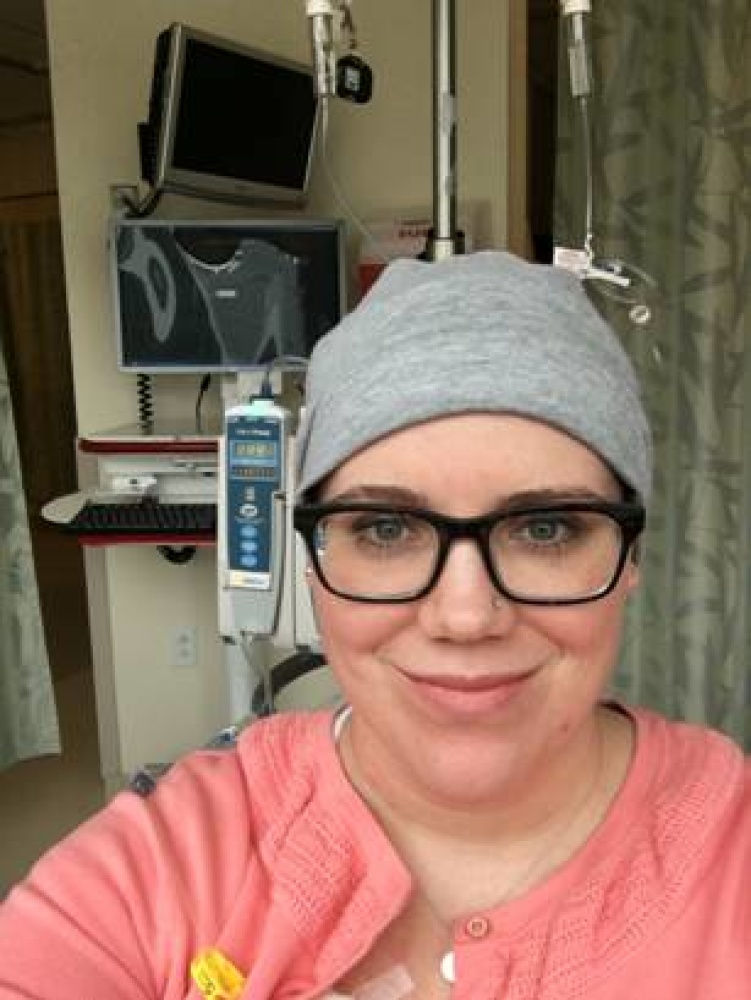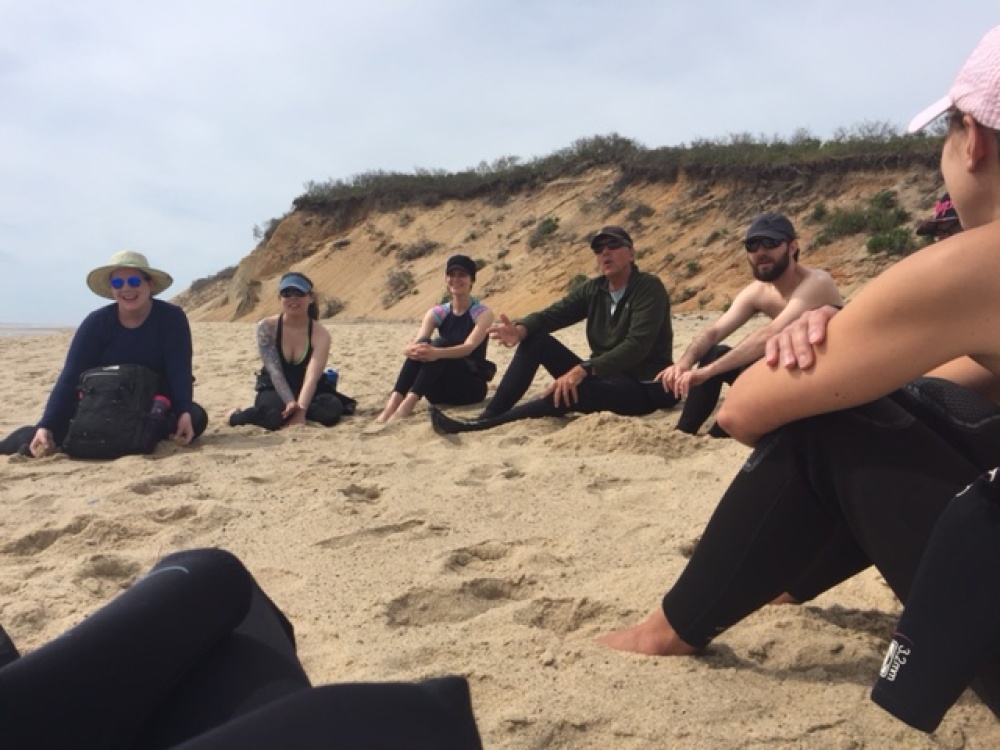By Kathleen Barton
When you get diagnosed with cancer, it kicks your butt – both the physical aspects of chemo and the general inertia that comes with this new thing you’re living with. Before my diagnosis, I was active – working, volunteering, exercising, and spending time with friends. Then some bruising and fatigue led me to my doctor. I was expecting to have anemia, like my sister. But that appointment turned into an emergency room visit that became a 45-day hospital stay. At some points I could barely get out of bed; just taking a shower became an amazing accomplishment. When I finally got home, I could barely walk up the stairs.

I was diagnosed with acute promyelocytic leukemia on Jan. 20, 2016, at 32. I immediately started an intense induction phase in the hospital, followed by outpatient consolidation at Dana-Farber, which consisted of concurrent intravenous and oral chemotherapy. My chemo cycle ended June 17 (we get the test results soon – hopefully it will show me in remission) and I’ll continue with maintenance therapy for two years to help prevent a relapse.
When you’re in treatment, life is moving on, but you feel as though you’re not. You’re shattered, vulnerable, scared, and immediately isolated, set apart by this thing no one else in your circle can quite comprehend – especially as a young adult! Most friends and family haven’t had to think about mortality in this way, which is a good thing, but it makes you feel so alone. It has been immensely freeing and cathartic to talk to other young adult patients who have been dealt the same hand through Dana-Farber’s Young Adult Program (YAP). The Young Adult Support Group, Young Adult Cancer Conference, and the recent YAP First Descents trip have helped me feel less alone.
Read more:
I’ve always been outdoorsy and active. I grew up with sports and had recently discovered I liked camping, which I was hoping to do more of this year. But one of the first things my doctors told me when I was diagnosed was not to fall or bruise; one of the biggest risk at that point was getting injured and not being able to control the bleeding. This active person I had been was suddenly put in bubble wrap. I reclaimed this piece of myself through the First Descents trip to Cape Cod, where I surfed, paddle boarded, and connected with five other young people with cancer.

Being able to do something active like surfing was so freeing for me, and I don’t think I would have been as comfortable doing it at this stage in my treatment if I hadn’t been with a group of people who also have cancer and “got it.” It was incredibly relaxing not having to explain my port or my neuropathy to anyone. And finishing the day physically exhausted from activity, not emotionally spent and physically fatigued, felt amazing.
During the day, we took surfing and paddle board lessons. At night, we had in-depth conversations about friendship and cancer, and what cancer can do to relationships. Particularly poignant were conversations about those people you thought would be there for you, but they’re not, or not in the way you need them to be. Changing friendships are issues all young adults go through, but adding the filter of cancer makes it more complicated and painful, and hearing other people’s experiences and advice was invaluable.

The best part of the experience was proving to myself that I can do these physical things again. Getting out there as soon as I had my doctor’s blessing helped me reclaim some of the things I thought cancer had taken from me, and realize that it didn’t take as much as I thought it did. I might not be as strong as I was before my treatment, and it may take a while for me to get back there (if ever), but that’s OK. I’m going to start adding exercise back into my routine: Yoga then barre, working my way back up to spin and boot camp. I’m even attending another week-long surfing trip with First Descents this fall!
Cancer takes so much out of you, but stretching yourself to do things you can helps you reclaim your independence, no matter your age.
